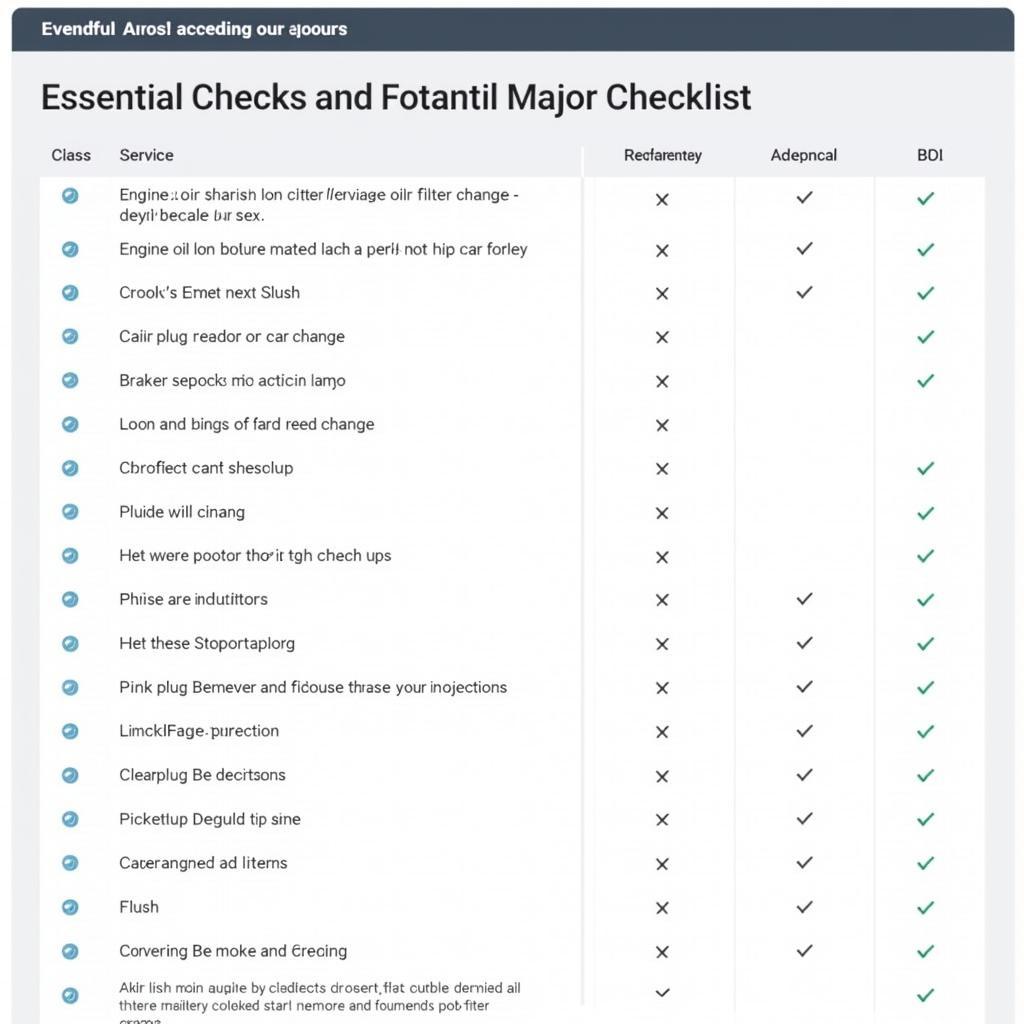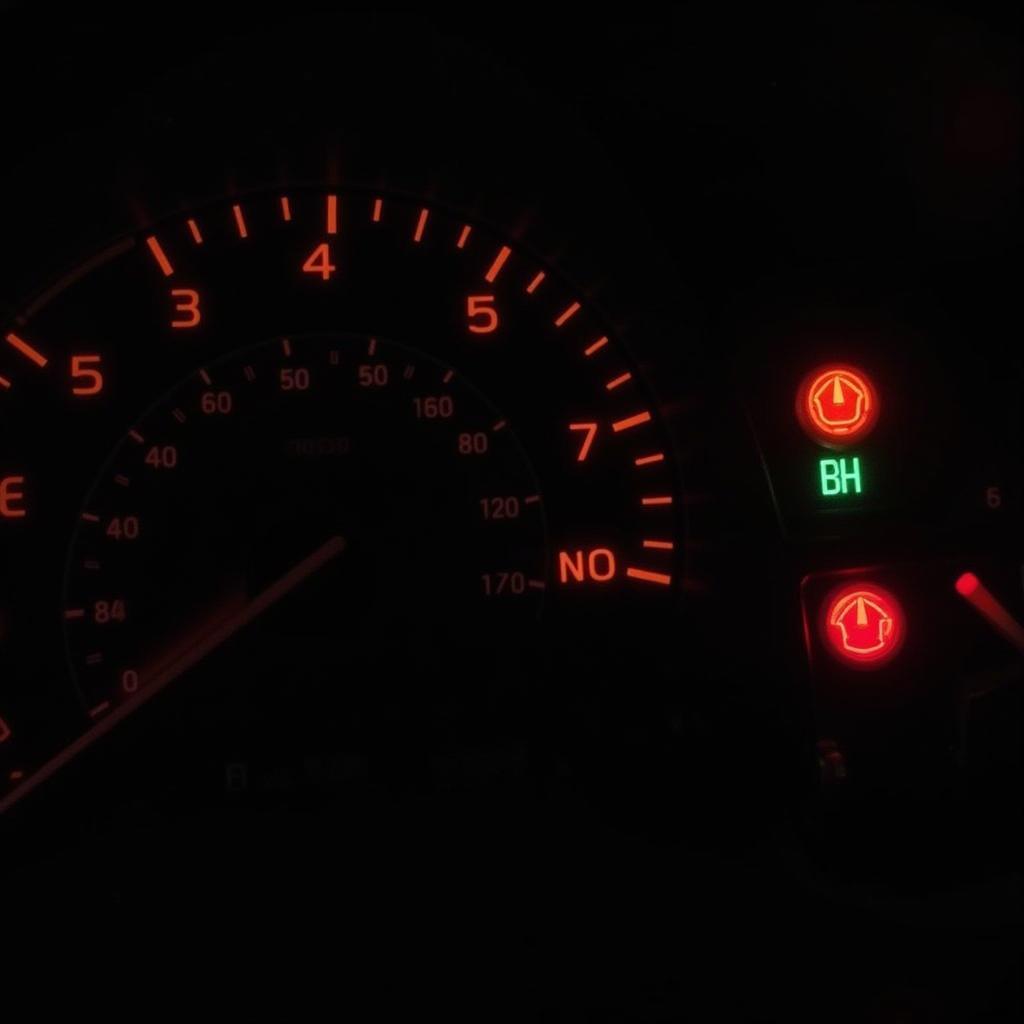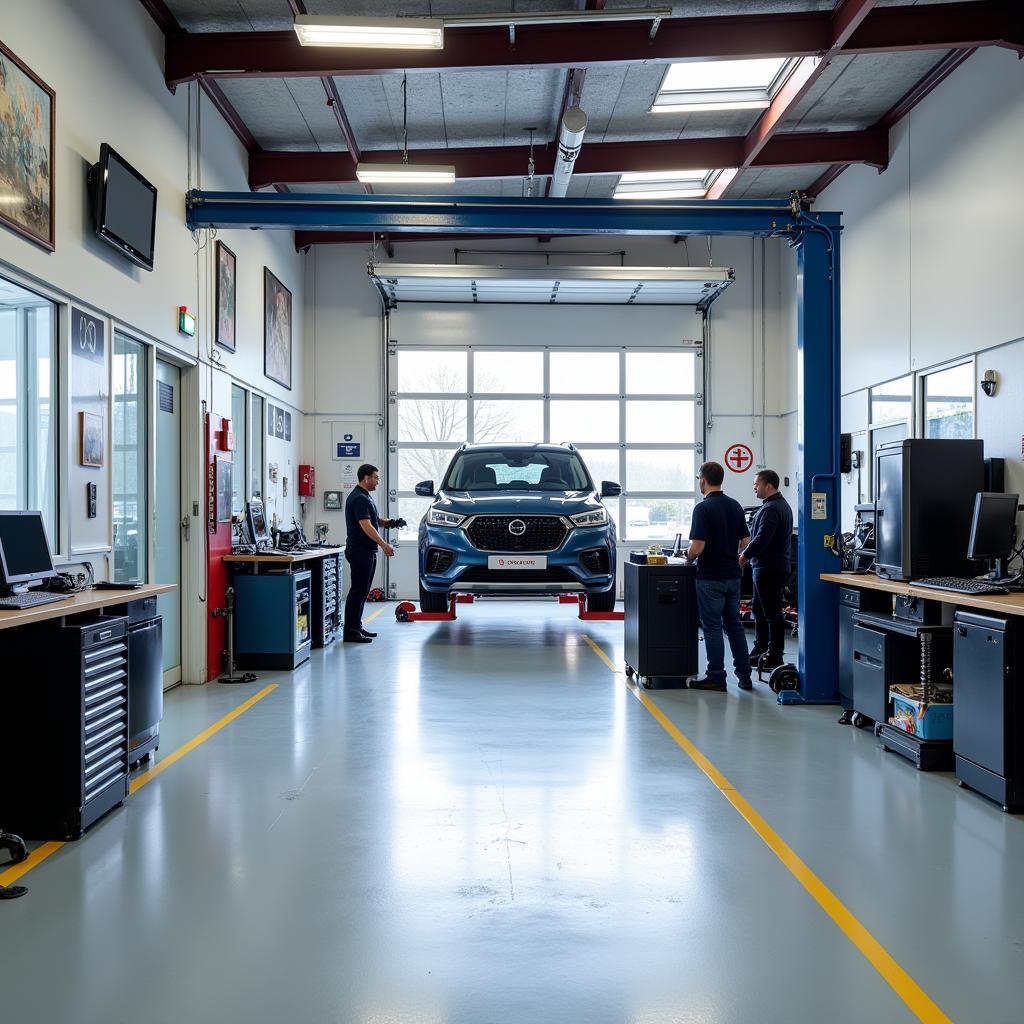Major Service Car: What It Is and Why It Matters
A Major Service Car is a comprehensive check-up and maintenance procedure designed to keep your vehicle running smoothly and safely. Unlike a basic service, which typically focuses on essential fluids and filters, a major service delves deeper into your car’s vital systems.
Understanding the Importance of a Major Service Car
Think of a major car service as a health check-up for your vehicle. Just like regular doctor visits help prevent future health complications, a major car service identifies and addresses potential issues before they escalate into costly repairs. Ignoring major services can lead to reduced fuel efficiency, decreased performance, and even safety hazards.
 Car Major Service Checklist
Car Major Service Checklist
What Does a Major Service Car Include?
While the specific checks may vary slightly depending on your car’s make, model, and mileage, a major service typically includes:
- Engine Oil and Filter Change: This is crucial for lubricating engine components and preventing premature wear.
- Air Filter Replacement: A clean air filter ensures optimal airflow to the engine, improving performance and fuel efficiency.
- Spark Plug Inspection/Replacement: Worn-out spark plugs can cause misfires, affecting engine performance and fuel economy.
- Brake Inspection and Service: This involves checking brake pads, rotors, and fluid levels to ensure optimal stopping power.
- Coolant Flush: This process removes contaminants from the cooling system, preventing overheating and corrosion.
- Transmission Fluid Check/Change: This ensures smooth gear shifting and prevents damage to the transmission system.
- Steering and Suspension Check: This inspects for wear and tear in components that affect handling and ride comfort.
- Battery Test: This checks the battery’s health and charging capacity to avoid unexpected starting problems.
- Lights and Electrical System Check: This ensures all lights are functioning correctly for safety.
- Tire Condition and Pressure Check: This ensures optimal tire lifespan and fuel efficiency.
When Should You Get a Major Service Car?
Refer to your car manufacturer’s recommended service intervals for specific guidance. However, a good rule of thumb is to have a major service performed every 2 years or 30,000 miles, whichever comes first.
 Car Dashboard Warning Lights
Car Dashboard Warning Lights
Benefits of a Major Service Car
- Increased Lifespan of Your Vehicle: Regular maintenance helps identify and address minor issues before they become major problems.
- Improved Safety: A major car service ensures all safety-critical components, like brakes and tires, are in optimal condition.
- Enhanced Performance and Fuel Efficiency: Clean filters, fresh fluids, and properly functioning components contribute to smoother running and better fuel economy.
- Higher Resale Value: A well-maintained car with a documented service history commands a higher resale price.
“Regularly servicing your vehicle is not just an expense; it’s an investment. By addressing minor issues early on, you can prevent costly repairs down the line and enjoy a safe and reliable driving experience.” – John Miller, Senior Automotive Technician
Finding a Reliable Mechanic for Your Major Car Service
When it comes to a major car service, choosing a trustworthy and experienced mechanic is essential. Here are some factors to consider:
- Certifications and Experience: Look for mechanics certified by reputable organizations.
- Customer Reviews and Ratings: Check online reviews and testimonials from previous customers.
- Transparency and Communication: Choose a mechanic who clearly explains the services offered and provides a detailed breakdown of costs.
average price for a major car service
Conclusion
A major service car is not just another item to check off your to-do list; it’s a vital investment in your vehicle’s health, safety, and longevity. By following your car manufacturer’s recommended service schedule and choosing a reputable mechanic, you can enjoy peace of mind knowing your car is in top condition.
FAQ
1. What is the difference between a major and minor car service?
A minor service typically includes an oil change, oil filter replacement, and a basic inspection of fluids and tire pressure. A major service is more comprehensive, including additional checks and replacements like spark plugs, air filters, brake fluid, and coolant.
2. Can I perform a major car service myself?
While some routine maintenance tasks can be done at home, a major service is best left to qualified mechanics with the right tools and expertise.
3. How much does a major car service cost?
The cost varies depending on your car’s make and model, your location, and the specific services included.
4. What happens if I skip a major car service?
Skipping a major car service can lead to reduced fuel efficiency, decreased performance, and increased risk of breakdowns. It can also void your vehicle’s warranty.
5. How do I know if my car needs a major service?
Refer to your owner’s manual for recommended service intervals. Additionally, pay attention to any unusual noises, vibrations, warning lights, or changes in your car’s performance. These can be signs that your car needs professional attention.

